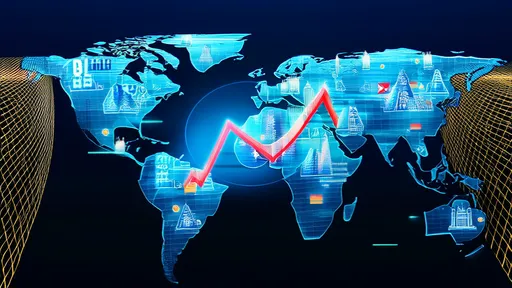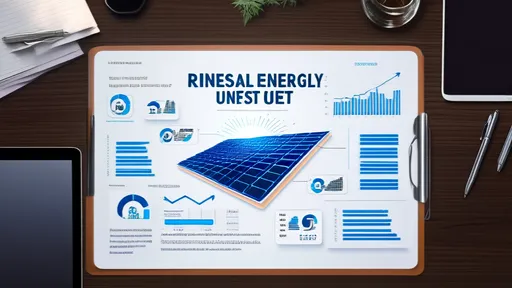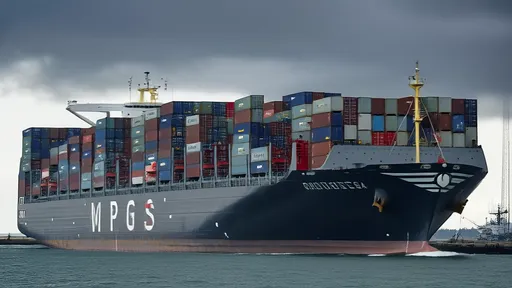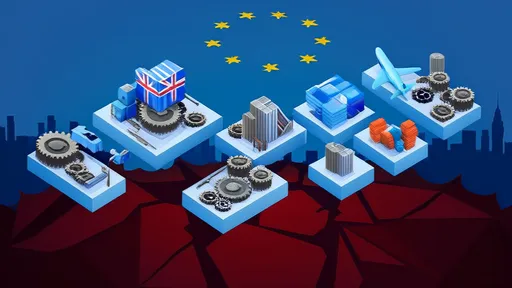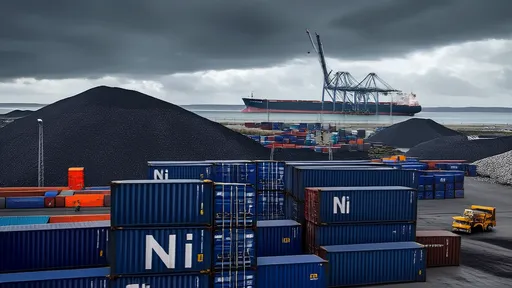The global artificial intelligence (AI) investment landscape is undergoing a seismic shift, with projections indicating that total spending on AI technologies will surpass $1.5 trillion by 2025. Among the key players driving this unprecedented growth, China stands out as a dominant force, accounting for an estimated 35% of the worldwide AI investment. This surge reflects not only the rapid adoption of AI across industries but also the strategic prioritization of AI development by governments and corporations alike.
China's AI Ambitions Take Center Stage
China's aggressive push into AI research and development has positioned it as a global leader in the field. Over the past decade, the country has made substantial investments in AI infrastructure, talent acquisition, and innovation hubs. By 2025, China's share of global AI investment is expected to reach 35%, a testament to its commitment to becoming the world's foremost AI powerhouse. The Chinese government's "Next Generation Artificial Intelligence Development Plan" outlines a clear roadmap for achieving this goal, with targets set for breakthroughs in core technologies, industrial applications, and ethical governance.
Major Chinese tech giants such as Alibaba, Tencent, and Baidu are at the forefront of this transformation, channeling billions into AI-driven solutions. From autonomous vehicles to smart cities, these companies are deploying AI at an unprecedented scale. Meanwhile, startups specializing in machine learning, natural language processing, and computer vision are flourishing, supported by robust venture capital funding and favorable regulatory policies.
Global AI Investment Trends
While China's growth in AI is remarkable, the broader global investment landscape is equally dynamic. North America and Europe continue to be significant contributors, with the United States leading in private-sector AI funding. Silicon Valley remains a hotbed for AI innovation, attracting top talent and substantial venture capital. However, Europe's approach is more fragmented, with individual nations like the UK, Germany, and France making independent strides in AI research and policy frameworks.
Emerging markets, particularly in Asia and the Middle East, are also increasing their AI investments. Countries such as India, Singapore, and the UAE are recognizing the transformative potential of AI and are actively fostering ecosystems to support its growth. This global diversification ensures that AI development is not confined to a few regions but is instead a worldwide phenomenon with far-reaching implications.
The Driving Forces Behind AI Spending
The exponential rise in AI investment can be attributed to several key factors. First, businesses across sectors—from healthcare to finance—are leveraging AI to enhance efficiency, reduce costs, and unlock new revenue streams. Predictive analytics, automation, and personalized customer experiences are just a few examples of how AI is reshaping industries. Second, governments view AI as a strategic asset for national security, economic competitiveness, and public services. Initiatives like smart infrastructure and AI-powered governance tools are becoming increasingly common.
Another critical driver is the rapid advancement of AI technologies themselves. Breakthroughs in deep learning, quantum computing, and neural networks are expanding the boundaries of what AI can achieve. As these technologies mature, their applications become more viable, attracting further investment. Additionally, the growing availability of big data and cloud computing resources has created an ideal environment for AI development, enabling faster experimentation and deployment.
Challenges and Ethical Considerations
Despite the optimism surrounding AI investment, significant challenges remain. Ethical concerns, such as data privacy, algorithmic bias, and job displacement, continue to spark debates among policymakers and industry leaders. China's rapid AI expansion, in particular, has raised questions about surveillance and the potential misuse of AI for authoritarian purposes. Striking a balance between innovation and regulation will be crucial to ensuring that AI benefits society as a whole.
Moreover, the global race for AI supremacy could lead to geopolitical tensions. As nations vie for dominance in critical technologies, issues related to intellectual property, trade restrictions, and international collaboration may arise. Ensuring that AI development remains inclusive and cooperative will be essential to avoiding fragmentation and fostering sustainable progress.
The Road Ahead
As the world approaches the $1.5 trillion AI investment milestone, the focus will increasingly shift toward responsible and equitable growth. China's 35% share underscores its pivotal role in shaping the future of AI, but the collective efforts of all nations will determine how this technology evolves. Whether through public-private partnerships, cross-border research initiatives, or ethical guidelines, the global community must work together to harness AI's potential while mitigating its risks.
The next few years will be decisive in defining AI's trajectory. With unprecedented financial resources being poured into the sector, the possibilities are vast—but so are the responsibilities. How humanity navigates this transformative era will have lasting implications for generations to come.
The World Trade Organization (WTO) has issued a stark warning about the growing fragmentation of global trade, cautioning that a breakdown in international cooperation could slash global GDP by up to 5%. The alarm comes amid rising geopolitical tensions, trade barriers, and a shift toward protectionist policies that threaten to unravel decades of economic integration.
The global food price index has shown a steady decline over the past several months, offering temporary relief to consumers worldwide. However, this positive trend masks deeper structural vulnerabilities in the world's food systems that continue to threaten long-term food security. While lower prices at grocery stores and markets provide welcome breathing room for household budgets, agricultural experts warn that climate change remains an existential threat to stable food production.
The once-explosive growth of cross-border e-commerce is showing signs of cooling, prompting major platforms to shift their focus toward emerging markets, particularly Southeast Asia. After years of double-digit expansion, global online retail sales are facing headwinds from economic uncertainty, supply chain disruptions, and shifting consumer behaviors. This slowdown has forced industry players to rethink their strategies, with many turning their attention to the relatively untapped potential of Southeast Asian nations.
The race for quantum supremacy has entered a new phase as tech giants IBM and Google accelerate their efforts to commercialize quantum computing. What was once a theoretical pursuit confined to research labs is now a high-stakes battle for market dominance, with both companies vying to establish themselves as the leader in this transformative technology. The competition is heating up as breakthroughs occur at an unprecedented pace, leaving investors, governments, and industries scrambling to understand the implications.
The global housing market, once a bastion of stability and growth, is now facing one of its most significant downturns in recent memory. Across Europe and North America, property prices have plummeted by an average of 15%, sending shockwaves through economies and leaving homeowners, investors, and policymakers scrambling to respond. This sharp decline marks the bursting of what many analysts had long warned was an unsustainable real estate bubble, inflated by years of cheap credit, speculative buying, and artificially low interest rates.
The global luxury market is experiencing an unexpected chill, and nowhere is this shift more pronounced than in China. As international luxury houses report softening demand from their most crucial demographic, a quiet revolution is taking place among Chinese consumers who are increasingly turning to homegrown high-end brands. This tectonic shift in consumer behavior is reshaping the luxury landscape in ways that few industry analysts predicted just five years ago.
The global semiconductor shortage that has plagued industries from automotive to consumer electronics since 2020 is finally showing signs of easing. However, beneath this broader recovery lies a paradoxical imbalance: while advanced chip production has largely stabilized, mature-node semiconductors remain stubbornly constrained. This divergence reveals fundamental shifts in the semiconductor ecosystem that may reshape supply chains for years to come.
The global energy landscape is undergoing a seismic shift as investments in renewable energy have surpassed those in fossil fuels for the first time in history. This milestone marks a turning point in the world’s transition toward cleaner energy sources, with solar power emerging as the dominant force driving this growth. The trend reflects not only changing market dynamics but also a broader recognition of the urgent need to combat climate change.
The biotech sector is witnessing an unprecedented surge in investor interest, with gene-editing companies leading the charge. Over the past year, venture capital firms and institutional investors have poured record-breaking sums into startups specializing in CRISPR and other gene-editing technologies. The momentum shows no signs of slowing down, as breakthroughs in therapeutic applications and agricultural innovations continue to capture both scientific and financial attention.
The global artificial intelligence (AI) investment landscape is undergoing a seismic shift, with projections indicating that total spending on AI technologies will surpass $1.5 trillion by 2025. Among the key players driving this unprecedented growth, China stands out as a dominant force, accounting for an estimated 35% of the worldwide AI investment. This surge reflects not only the rapid adoption of AI across industries but also the strategic prioritization of AI development by governments and corporations alike.
The global shipping industry is facing unprecedented turbulence as freight rates skyrocket and the Red Sea crisis exacerbates supply chain disruptions. What began as regional geopolitical tensions has spiraled into a worldwide logistical nightmare, squeezing businesses already struggling with post-pandemic recovery. The ripple effects are being felt across industries, from automotive manufacturers waiting on critical components to retailers staring at half-empty shelves during peak shopping seasons.
The UK's post-Brexit economic landscape continues to face significant headwinds, with recent data revealing a record-high trade deficit and persistent contraction in the manufacturing sector. These developments have reignited debates about the long-term consequences of leaving the European Union, as British businesses struggle to adapt to new trade barriers and supply chain disruptions.
The African Continental Free Trade Area (AfCFTA) has officially commenced operations, marking a historic milestone in the continent's economic integration. With the ambitious goal of doubling intra-African trade by 2035, the initiative is poised to reshape the economic landscape of Africa, fostering greater collaboration among its 54 member states. The AfCFTA represents the world's largest free trade area by the number of participating countries, covering a market of over 1.3 billion people and a combined GDP of approximately $3.4 trillion.
The Philippines and the United States have recently inked a pivotal agreement aimed at strengthening cooperation in the critical minerals sector, a move widely interpreted as an effort to reduce reliance on China. This strategic partnership underscores the growing geopolitical significance of securing supply chains for minerals essential to modern technology, renewable energy, and defense systems. As tensions between Washington and Beijing continue to escalate, the deal signals a broader shift in global trade dynamics, with nations increasingly seeking alternatives to Chinese dominance in the critical minerals market.
The global electric vehicle (EV) industry is facing a significant cost surge as Indonesia, the world’s largest nickel producer, enforces a strict ban on nickel ore exports. The policy, initially introduced in 2020 to promote domestic processing, has now begun to exert intense pressure on battery manufacturers scrambling to secure alternative sources. With nickel being a critical component in lithium-ion batteries, the restriction has disrupted supply chains and driven up production costs for EV makers worldwide.
